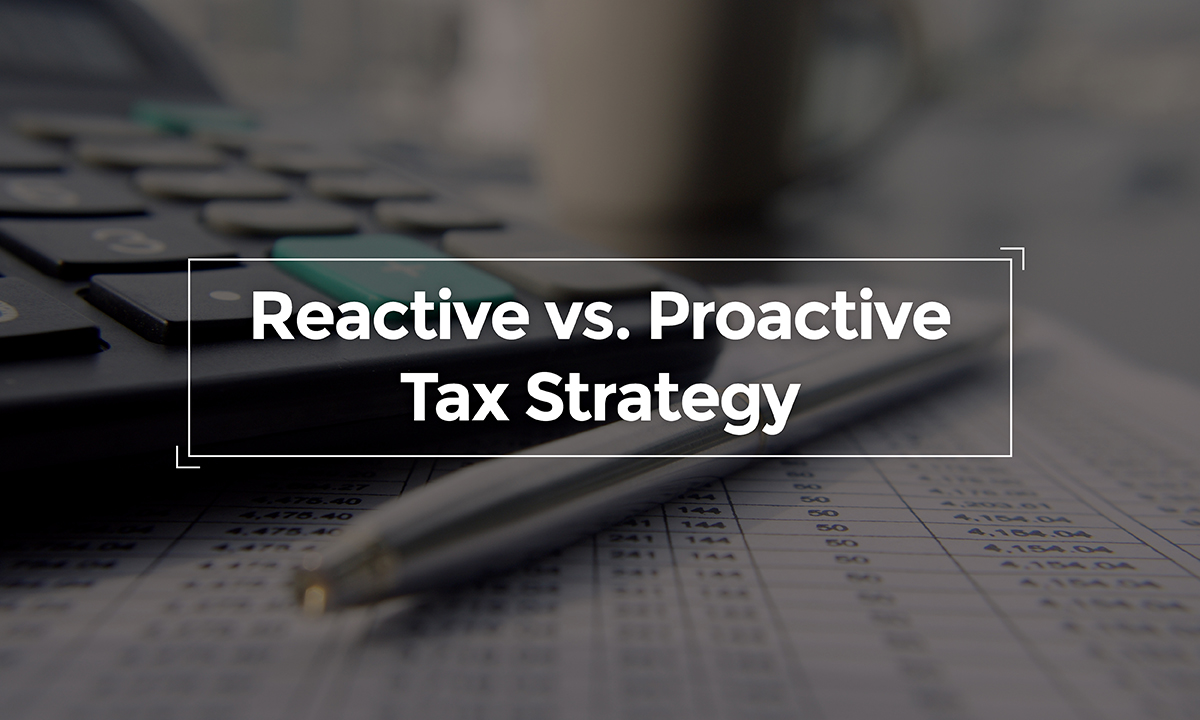
It’s May – and you’re likely very happy to have tax season behind you. We know better than most how frustrating tax filing can be for many taxpayers. The rush to get materials together, finding time to meet with your accountant, and – possibly – scrounging up money to pay your tax bill.
Let me pose a question to you: did you ever feel during this process like you didn’t have a plan or didn’t have a firm idea what the outcome of your tax filing would be? And – while you were working on your return with your accountant – did they take time to discuss with you your tax planning strategy for 2019? Meeting with your CPA should be about more than just filing your taxes. Your accountant should be discussing a proactive tax strategy for the coming years, rather than just looking back on the previous year. Having a plan in place can make April much less painful for you and your accountant.
Advantages of a Proactive Tax Plan
Good tax preparation is vital, but you also need a proactive strategy. Taxes are typically the number one annual expense for an average American household. A proactive tax plan allows you to lower your tax liability, increase business profitability (if applicable) and increase your overall wealth.
Most individuals simply take their needed tax documents to a tax professional before the filing deadline, and the tax professional files their return based on that data. However, a tax planner will assess your current situation, your sources of income and your goals to come up with a customized tax strategy for the future. This will ensure that you are taking advantage of all legitimate deductions and credits the tax code allows.
Just some of the questions to ask yourself when considering your current tax plan:
- What are your financial goals?
- Should you be taking the standard or itemized deduction in the coming years?
- Are you making charitable donations in the most tax-efficient way possible?
- What are your passive loss strategies?
- Do you have investment strategies to lower your tax liability?
- If you own a business, is your business structure conducive to the best tax rate?
Meeting with your accountant should be proactive, rather than reactive. If your tax advisor has not discussed a proactive tax strategy with you, contact Insight Wealth Group to come up with a tax plan that aligns with your financial goals.

